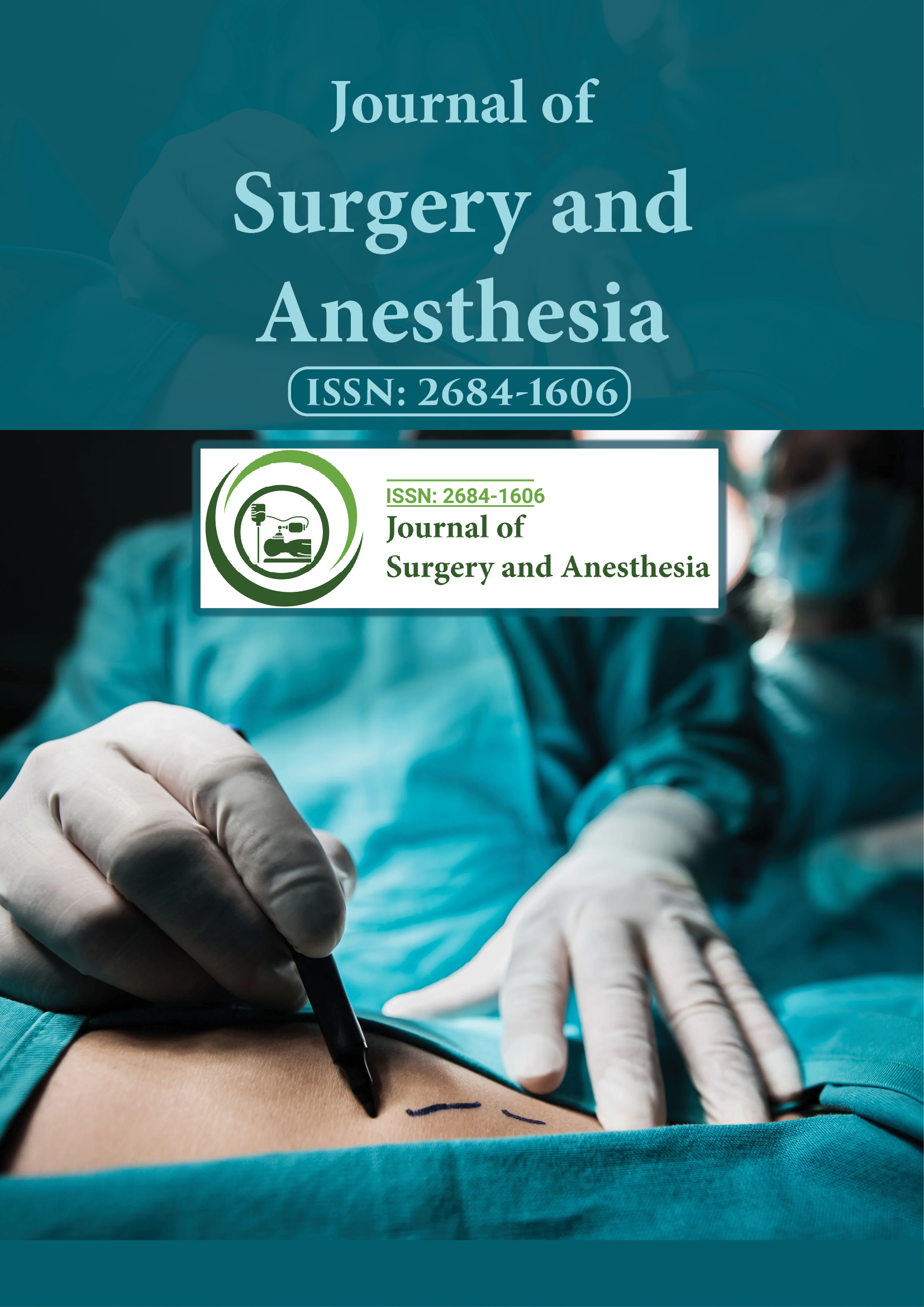Indexed In
- Google Scholar
Useful Links
Share This Page
Journal Flyer

Open Access Journals
- Agri and Aquaculture
- Biochemistry
- Bioinformatics & Systems Biology
- Business & Management
- Chemistry
- Clinical Sciences
- Engineering
- Food & Nutrition
- General Science
- Genetics & Molecular Biology
- Immunology & Microbiology
- Medical Sciences
- Neuroscience & Psychology
- Nursing & Health Care
- Pharmaceutical Sciences
Perspective - (2023) Volume 7, Issue 3
The Impact of Communication and Support on Maternal Satisfaction in Preoperative Anesthesia
Snam Koe*Received: 11-Aug-2023, Manuscript No. JSA-23-23026; Editor assigned: 14-Aug-2023, Pre QC No. JSA-23-23026 (PQ); Reviewed: 28-Aug-2023, QC No. JSA-23-23026; Revised: 04-Sep-2023, Manuscript No. JSA-23-23026 (R); Published: 11-Sep-2023, DOI: 10.35248/2684-1606.23.7.223
Description
The practice of preoperative anesthesia plays a crucial role in ensuring the safety and comfort of pregnant women undergoing surgery. Maternal satisfaction, a key component of healthcare quality, is significantly influenced by the care provided during the preoperative phase. Maternal satisfaction encompasses a woman's overall assessment of her healthcare experience during pregnancy, labor, and postpartum care. It reflects the quality of care received, the patient-provider relationship, and the extent to which the healthcare system meets her physical and emotional needs. Effective communication between the anesthesia team and the expectant mother is essential.
Clear explanations about the anesthesia procedure, its risks and benefits, and the expected outcomes help alleviate anxiety and build trust. A patient-centered approach, which considers the individual needs and preferences of the pregnant woman, contributes to higher satisfaction. This includes addressing concerns and involving the patient in decision-making when appropriate. Adequate pain management during the preoperative period is critical. Expectant mothers appreciate efforts to minimize discomfort and pain. Prompt and efficient care, including minimal waiting times, is associated with higher satisfaction scores. Providing emotional support and reassurance is vital, especially for pregnant women who may experience heightened anxiety before surgery.
Ensuring that the patient fully understands the anesthesia procedure and obtains informed consent is essential for satisfaction. Maintaining the patient's privacy and dignity during the preoperative process contributes to a positive experience. Limited time for preoperative assessments and discussions can hinder effective communication and patient education. Pregnant women may experience heightened anxiety before surgery, making it more challenging to provide reassurance and address concerns. Variability in the attitudes and communication skills of healthcare providers can impact maternal satisfaction.
A lack of empathy or understanding can lead to negative experiences. In some healthcare settings, resource constraints may limit the availability of pain management options or staff for emotional support. Invest time in clear and empathetic communication. Explain the anesthesia procedure, potential risks, and expected outcomes in a language that the patient can understand. Address questions and concerns thoroughly. Provide educational materials or resources about anesthesia and the surgical process well in advance, allowing expectant mothers to prepare mentally. Prioritize effective pain management strategies during the preoperative phase, ensuring that the patient is comfortable and well-informed about pain relief options.
Encourage collaboration between anesthesia providers, obstetricians, and other healthcare professionals to provide comprehensive care and address the patient's physical and emotional needs. Recognize the emotional challenges that pregnant women may face before surgery and provide empathetic support. Encourage family involvement when desired by the patient. Ensure that the patient fully understands the anesthesia procedure and associated risks and benefits. Obtain informed consent in a respectful and thorough manner. Healthcare institutions can implement quality improvement programs that focus on enhancing maternal satisfaction during the preoperative phase. Regular feedback from patients can guide improvements.
Maternal satisfaction with preoperative anesthesia care is a critical aspect of healthcare quality, especially for pregnant women facing surgery. Effective communication, patient-centered care, pain management, and emotional support are key factors in enhancing satisfaction. Healthcare providers and institutions should prioritize individualized care plans and continuous quality improvement efforts to ensure that expectant mothers receive the best possible care during the preoperative phase, ultimately contributing to positive birth experiences and improved outcomes for both mothers and new borns.
Citation: Koe S (2023) The Impact of Communication and Support on Maternal Satisfaction in Preoperative Anesthesia. J Surg Anesth. 7:223.
Copyright: © 2023 Koe S. This is an open access article distributed under the terms of the Creative Commons Attribution License, which permits unrestricted use, distribution, and reproduction in any medium, provided the original author and source are credited.
